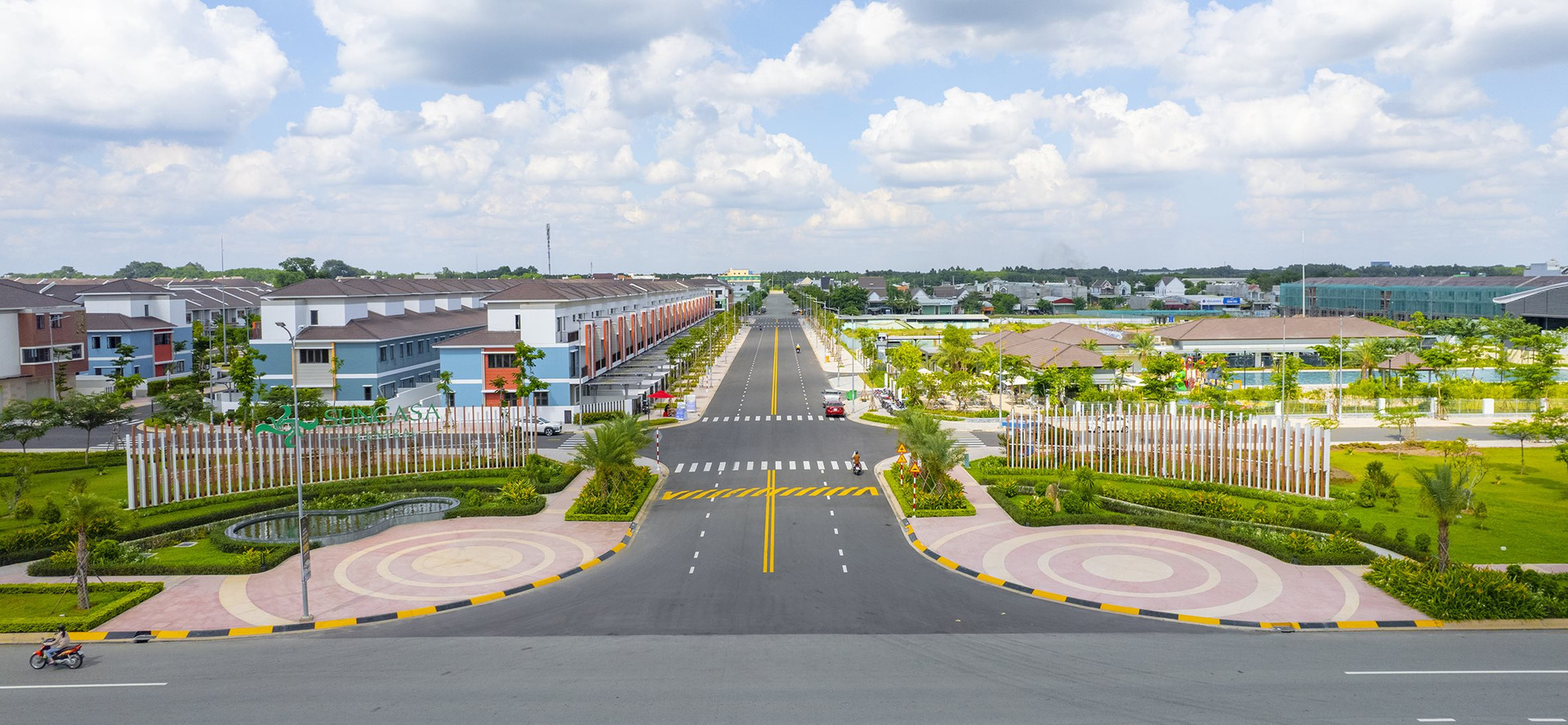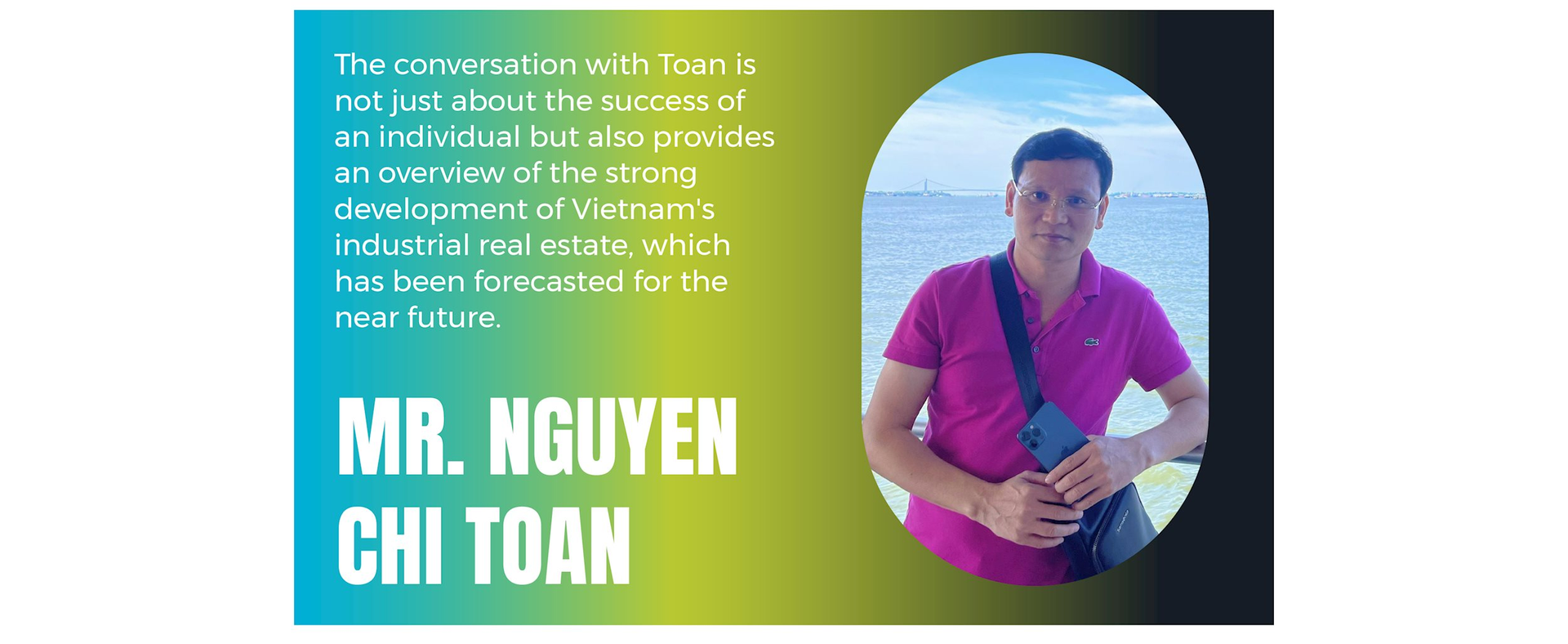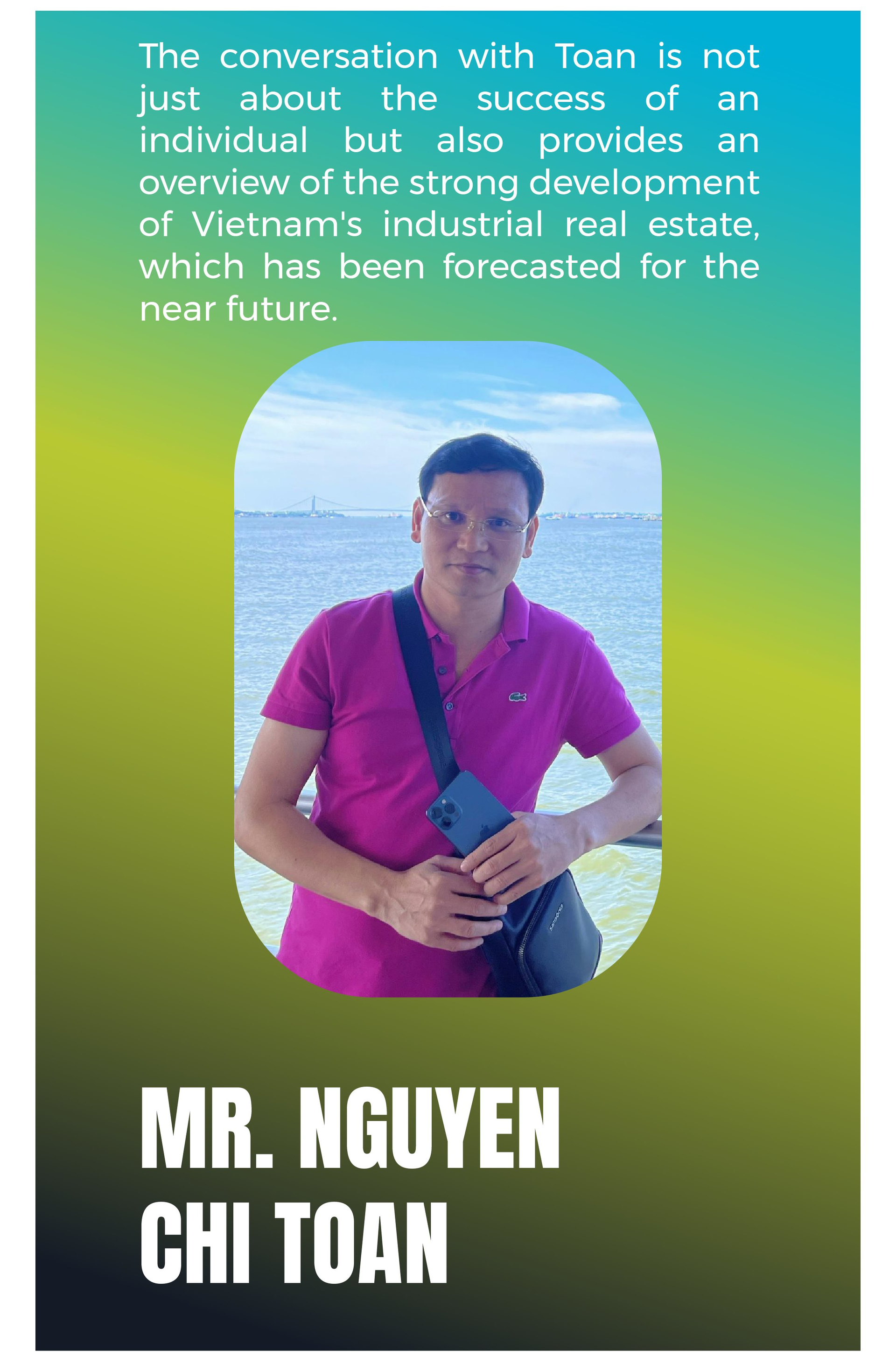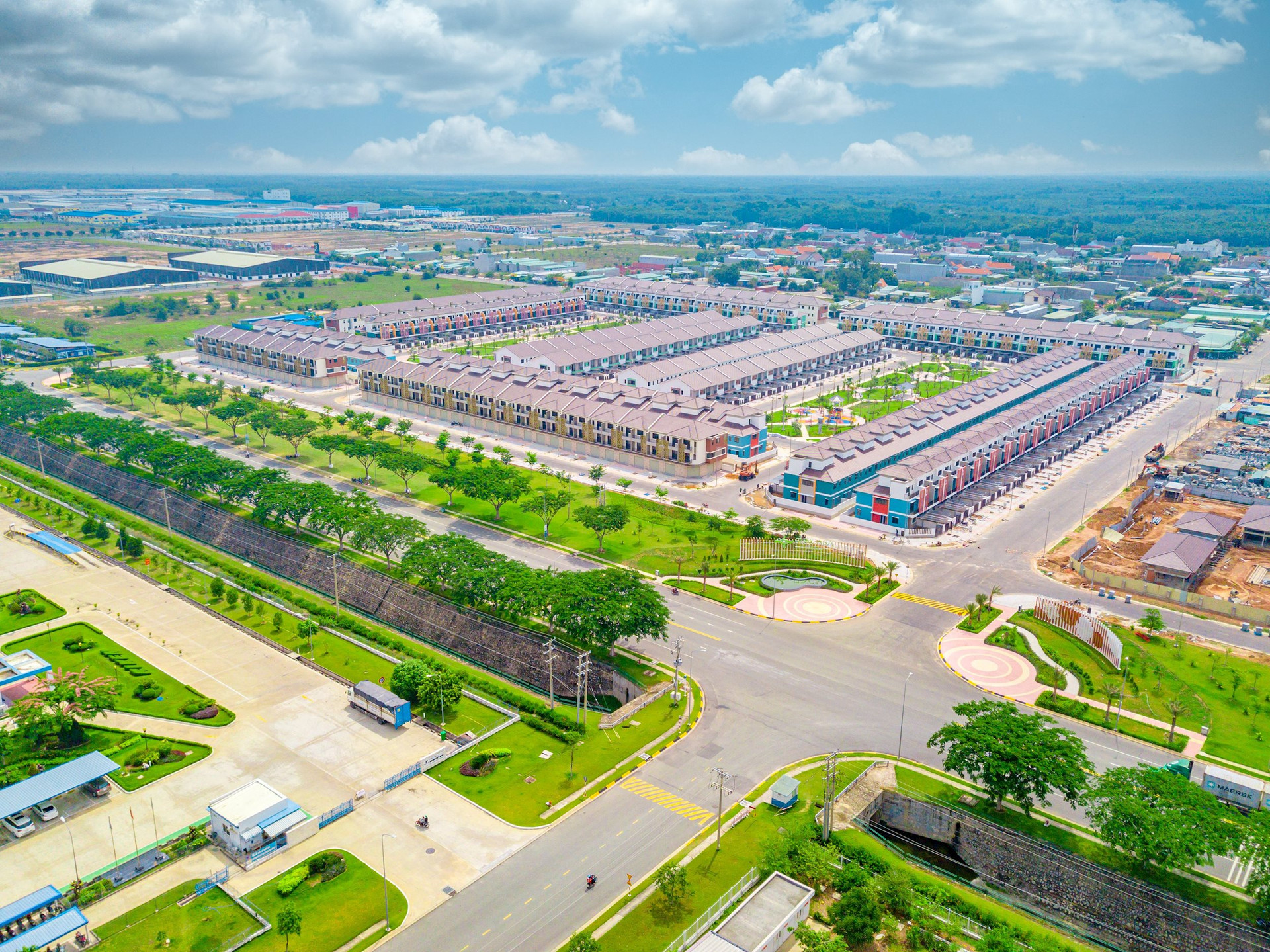.png)
.png)
Hello Mr. Nguyen Chi Toan, we know that you have extensive experience in industrial real estate investment in Vietnam. Could you share a bit about your career development?
Mr. Nguyen Chi Toan: How should I put it? (Ha ha…) I began consulting and calling for investments in industrial real estate (IRE) in late 2001 and 2002 when I first started working for Vietnam – Singapore Industrial Park (VSIP). I must say, it was a challenging period for me and also a difficult time for the country's industry, including VSIP. I can't forget my early days in the profession, with many new specialized knowledge areas to grasp while I was still lacking in many aspects. However, working in a professional environment like VSIP, I was fortunate to be trained and learn from experienced foreign experts in the industrial sector. I self-taught and applied practical knowledge from the stories of my country during the transition period, gradually accumulating useful experiences.
The saying "Heavenly timing, geographical advantage, and human harmony" applies to all situations and brings us much reflection. After the Asian economic downturn in the late '90s and early 2000s, everything began to recover from the end of 2001 to early 2002, and foreign direct investment (FDI) into Vietnam began to thrive. Investors from Taiwan, Singapore, Japan, South Korea, Malaysia, etc., started to explore investment opportunities in Vietnam. We also adopted the policy of "rolling out the red carpet" to invite investors. I joined the industry during that period, learning and drawing many lessons and experiences from it.

Looking back with pride, from being the youngest member of the marketing department, I learned a lot during my work. I have experienced almost all the waves of FDI into Vietnam (2002-2003, 2007-2008, 2016-2018, and now) and received encouragement and support from VSIP Group's leadership. I have held various positions, from industrial activities, organizing and operating industrial parks such as surveying, compensation clearance, construction planning, marketing, and operations. I have participated in all of these, so now I can answer any questions from customers, partners, or even authorities. Fortunately, it seems that all the expansion projects across the country have successfully brought in the first investors. My daily work creates passion, allowing me to work with many different partners, industries, and economic sectors, travel, and explore some of the most developed places in the world. Especially, I have gained valuable knowledge by interacting with leaders of corporations and organizations. Therefore, after nearly 23 years of working, I still haven't felt bored and always find many things to discover and many goals to reach. That also answers the question many people ask about why I have worked in one place for so long without feeling bored and haven't changed.
.png)
.png)
According to you, what is the most important factor when assessing the potential for investment in the industrial real estate sector in Vietnam?
Mr. Nguyen Chi Toan: It can be said that Vietnam has been one of the most attractive destinations for FDI investors worldwide for over two decades. Generally, in the manufacturing sector, besides the giant China, we might be the most appealing and attractive country. I believe we still have this opportunity for at least another decade, as the favorable factors for investors to choose to build production plants are still significant. Currently, the trend of restructuring to diversify bases and markets means that large corporations around the world will choose to build a second or third plant outside of China. Investors are also shifting to green, high-tech, and sustainable development models, which have great potential, especially from large companies and corporations from developed countries around the world. These factors provide us with great potential and success in investing, building, and developing industrial real estate, especially in the new-generation industrial park segment.
Mr. Toan, you are known for your many years of work in this industry, specifically at the VSIP. Looking back over the past few decades in industrial real estate activities, are there any milestones that you consider memorable?
Mr. Nguyen Chi Toan: If we talk about a specific issue or event, there are many, but what impresses me the most are the overall successes. I take the actual process of transformation and development of VSIP as an example.
In the early days, about 20-28 years ago, we focused purely on industry with the goal of attracting investment to create jobs, contribute to the state budget and taxes, build, and help complete local infrastructure. At that time, we had the advantage of a large labor force and plenty of land. After the peak of FDI attraction around 2008, with a significant increase in labor, the available land gradually moved further away from major city centers, and the demand for housing and accompanying services began to emerge. We transitioned to the Industrial - Urban - Service model to not only build industrial spaces but also develop housing and supporting services. Up to now, we have formed the new-generation industrial park model, developing modern infrastructure to welcome high-quality investors with high technology, especially focusing on the environment, social responsibility, and future generations.
These are the three most memorable milestones in my career.
.png)
.png)
In the context where the real estate market in general and industrial real estate in particular are undergoing many changes, what trends do you feel are currently prevailing?
Mr. Nguyen Chi Toan: Regarding industrial real estate, the current trend is, of course, technology, environment, and adapting to new trends. At some point, everyone needs better, more complete, more beautiful, and more responsible solutions. This includes infrastructure, warehouses, factories, and machinery, which all need to be upgraded to meet these needs. The trend must be quality, technology, intelligence, and the use of renewable energy. I think commercial real estate is the same; if a housing project or any building does not follow this trend, it will fall behind and no longer be accepted by society. AI technology will develop and be applied more, semiconductor industries, and research products will be more focused on.
Regarding technology associated with development, do you think technological advances like artificial intelligence and blockchain will affect the industrial real estate sector in the future?
Mr. Nguyen Chi Toan: Of course, AI and blockchain can optimize asset management and predict market trends. Blockchain can improve transparency and security in all transactions or activities related to real estate in general and industrial real estate in particular. AI can also become a trend that replaces some basic tasks in the industrial real estate sector.


According to you, what factor should be the top priority when choosing an investment location in industrial real estate?
Mr. Nguyen Chi Toan: First, you must put yourself in the investor's shoes, understand supply and demand, and understand the market.
First, from a macro perspective, "political stability" is crucial. During the years of FDI waves into Vietnam, as mentioned earlier, investors paid great attention to this factor. This determines the choice at the macro level. We have achieved very encouraging results over nearly three decades thanks to this factor. Political stability gives us an advantage over other countries and markets.
Second, at a micro level, the location of the investor's factory or facility is essential. Three critical factors that a good location provides are ease of access to and use of infrastructure (airports, seaports, and developed urban areas) most conveniently and effectively. As the world becomes more connected, having a location that easily and conveniently connects to infrastructure is essential. Besides convenience, optimal costs, logistics, and time will determine the investor's success.
The next factor is labor. An area where investors can easily access and recruit labor is crucial for success.
What are your thoughts on the importance of community building in industrial real estate projects?
Mr. Nguyen Chi Toan: I believe it is very important. No matter how well you do, you alone cannot create the same effect and efficiency as a community. The majority will be the value that proves and ensures the quality of everything, not just industrial real estate. For example, a single marketing staff member cannot match the impact of 100 people. A smart investor will never value the appraisal of a single unit over that of an entire association.
When one unit works alone, there is no basis for mutual reference, feedback, and improvement compared to when the whole community works and shares together. The improvements made by a community will undoubtedly be stronger and better.
.png)
.png)
In today's era, do you think that building industrial real estate projects needs to comply with environmental and sustainability standards?
Mr. Nguyen Chi Toan: This is unquestionable. As I mentioned earlier, the world is changing every day, and Vietnam has committed to achieving net zero CO2 emissions by 2050. I believe this is a very challenging but necessary and mandatory mission. This means that industrial real estate needs to be more meticulous and adhere to environmental standards from now on. At VSIP, we have strived and been fortunate to comply with the regulations and standards over the past 28 years. Now, we need to change and strive even better. We hope that VSIP will be one of the pioneering industrial environments in the country, fulfilling its responsibilities and working alongside the government. We do this for ourselves, our children, and future generations to continue the achievements and efforts of our ancestors. We cannot predict exactly what the world will be like tomorrow, but to exist, we must comply and develop sustainably.
What factors do you particularly consider when assessing risks for industrial real estate projects?
Mr. Nguyen Chi Toan: In the industrial real estate environment, our daily operations are influenced by and related to all fields, so risks can always occur. I believe that investors who are not serious about planning and building strategies need to be extremely cautious.
First is the legal status of the land for the project.
Second is the investor's commitment through planning design. Industrial park developers need to fully understand their capabilities when planning to implement projects. An industrial park is not like a residential or urban area; its scale is often much larger and involves various economic sectors.
Third is finance. Large investments and longer payback periods compared to commercial real estate involve time and progress in implementation. Whether the project is effective depends on the construction progress being completed in time for leasing and the ability to attract investment.

Fourth is the social and environmental risks, not just the risks of the developer. The management and maintenance model of an industrial park is not just about leasing and filling spaces; success also depends on long-term project operations. The consequences and risks of subleasing land in industrial parks increase over time due to lax management and insufficient attention.
Fifth is the application of environmental standards and technology for industrial real estate development projects. This sector involves many environmentally sensitive industries, making it challenging to achieve and maintain both image and quality.
Can you share about some industrial real estate projects you have participated in and achieved notable success at VSIP?
Mr. Nguyen Chi Toan: To date, I don't consider myself successful yet, but over nearly 23 years of work, there have been many ups and downs and memorable moments. I can mention a few typical cases, such as the URC (Universal Robina Corporation) factory, a leading diversified conglomerate from the Philippines that decided to invest in VSIP after a long period of my marketing and persuasion. The most profound impression was working with many senior personnel of the corporation, receiving many sincere and good-faith questions. Finally, we received the consensus and high appreciation of the entire leadership and the 80-year-old chairman who flew from Manila to Vietnam.
Another example is P&G (Procter & Gamble) and Unilever, one of the largest consumer goods corporations in the world from the USA and the UK, respectively. Working with them was extremely detailed, serious, somewhat meticulous, and challenging, with many negotiation meetings lasting until midnight. However, I always felt excited and humble because I was negotiating with giants. Through such sessions, I learned many valuable lessons, gained knowledge, and negotiation styles. The relationships I built from those times are still important milestones in my career.
.png)
.png)
In your career, have you participated in implementing any project management methods that you find effective?
Mr. Nguyen Chi Toan: VSIP currently has 18 projects across the country, with more to come. I have had the opportunity to contribute to or at least participate in some aspect of these projects. To be specific, Bình Dương, Bắc Ninh, Hải Phòng, Quảng Ngãi, and Nghệ An are the places that have left me with the most memories. What I am most proud of and consider a success in my work is the creation of a globally connected marketing project, establishing relationships with many different organizations. To this day, I still find that my approach, along with my colleagues and partner organizations, has been quite effective.
Regarding skill and knowledge development, what do you think is most important for newcomers or those wanting to approach the industrial real estate sector?
Mr. Nguyen Chi Toan: Learning a new piece of knowledge each day. I always inspire the next generations by recording all the activities of the day, then reflecting on and evaluating what I learned and achieved from those actions and activities. Finally, I draw lessons from these activities to enrich my knowledge base.
For newcomers, legal knowledge is extremely important and should be focused on to quickly gain good insights. Work needs to be goal-oriented with sincerity, analyzing all the strengths and weaknesses of products and projects, paying attention to accurate details and commitments. Always improve your presentation, persuasion, and negotiation skills, constantly learn and update information on macroeconomics, policies, and changing trends. Organize time to participate in and explore all fields.
The most important thing is to strive to complete and clarify even the smallest tasks, making sure to document and report them. Monitor and research the needs and trends of investors through forums. There are many other factors to consider, but another key element is building diverse relationships and as many partnerships as possible.
Can you share some new trends in the industrial real estate sector that you are currently interested in?
Mr. Nguyen Chi Toan: Currently, I am interested in trends such as smart factories, technology and semiconductor industries, green energy, and renewable energy.
If you had advice for new investors wanting to enter the industrial real estate sector in Vietnam, what would you tell them?
Mr. Nguyen Chi Toan: Sustainable development and the environment are the first two factors that need to be mentioned. Next, we need to clearly understand our capabilities and strengths. Adhere to legal standards and regulations along with your commitments. Carefully study the needs of partners and investors. There are many issues to pay attention to that are difficult to list all here.
.png)
.png)